How to obtain South Korean citizenship: What you need to know
South Korea has had an industrial boom in the last decade, which has stabilized the country, grown its economy, and made it more attractive to...
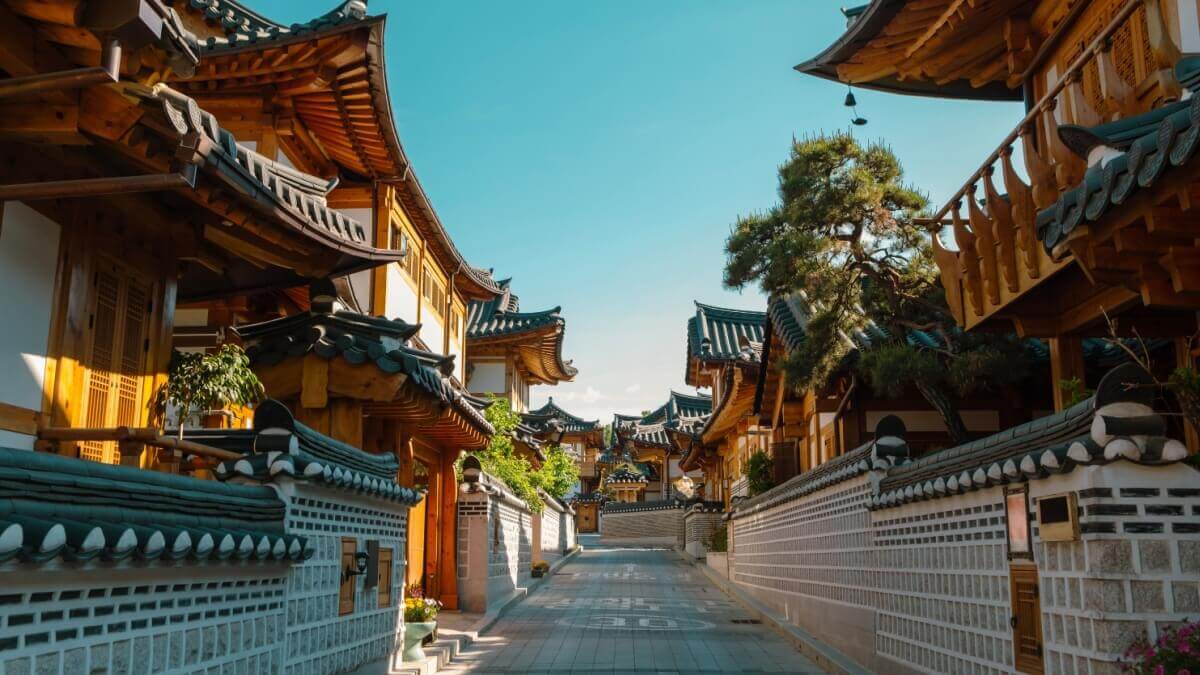
South Korea is a popular destination for expats who enjoy its excellent food, public transportation, and advanced infrastructure. That said, finding an apartment in South Korea can be one of the most challenging parts of relocating.
The cost of renting in Korea is comparatively low. A 1-bedroom apartment in central Seoul averages 1,206,611 KRW per month - just around 905 USD.¹ But the crowded real estate market, language barrier and a unique rental system can make the process more difficult.
Keep reading to learn everything you need to know about successfully renting in South Korea.
| 🚀 Use Wise to easily transfer money to South Korea, pay your rent and spend like a local. It's fast, simple and secure with no hidden fees, even for large amounts. |
|---|
Yes, Americans can rent property in South Korea without a problem.
There are no restrictions on foreigners entering into rental contracts, but you should still keep a few things in mind:
- Visa requirements: You don't need to be a Korean citizen to rent, but you'll typically need a valid visa that allows you to stay in the country long-term
- Language barrier: Many landlords and real estate agents don't speak English fluently (or at all), so consider learning some language basics or using a translator
- Cultural differences: Be prepared for some unique aspects of Korean rental agreements, such as the "key money" system (large security deposits)
- Identification: You'll need your passport or an Alien Registration Card (ARC )for most rental agreements
As long as you have the necessary documents and funds, you should be able to rent property in South Korea just like a local resident.
Renting in Korea without a job is possible, but it'll be more difficult. You may have to take some extra steps to prove your reliability to the landlord, such as:
If you're a student, your student visa and proof of enrollment are typically enough, and you don't need proof of employment.
Rent in South Korea depends on the city and neighborhood you choose but is generally affordable, especially compared to the US.
| City | Monthly rent (1-bedroom, city center) |
|---|---|
| Seoul | 1,206,611 KRW (~905 USD)¹ |
| Busan | 658,333 KRW (~495 USD)³ |
| Gyeongju | 1,810,652 KRW (~1,358 USD)⁴ |
| Daegu | 554,709 KRW (~416 USD)⁵ |
| Incheon | 525,000 KRW (~394 USD)⁶ |
These are average prices. Actual rents depend on factors such as apartment size, amenities, and proximity to public transportation.
The capital and the largest city, Seoul tends to have some of the highest rental prices in the country. That said, Gyeongju is also relatively expensive.
The average apartment price in Seoul is 1,206,611 KRW (or ~905 USD) for a 1-bedroom in the city center. This price jumps up to 3,557,289 KRW per month - or ~2,700 USD - for a 3-bedroom in a central location.¹
Outside of the city center, you can expect much lower average prices, 678,000 KRW for a 1-bedroom and 1,891,120 KRW for a 3-bedroom. This translates to approximately 508 USD and 1,420 USD respectively.¹
Daegu and Incheon offer more budget-friendly options, with rents significantly lower than those in Seoul. You can expect to pay roughly 400 USD for a 1-bedroom apartment in the city center.⁵⁶
When renting South Korea apartments, make sure to think about additional costs beyond the base rent. Here's a breakdown of common expenses you may have to pay in addition to rent.
| Category | Estimated monthly cost⁷ |
|---|---|
| Utilities | 224,921 KRW (~168 USD) |
| Internet | 29,139 KRW (~21 USD) |
Utilities are typically the responsibility of the tenant. In some buildings, especially older ones, tenants may split utility costs. Make sure to ask your landlord or real estate agent about how utilities work in your specific building.
Regardless, the bill for your gas, electric and other utilities typically needs to be paid at the bank or the post office. You won’t be able to pay your utilities alongside your rent.
There's sometimes a building maintenance fee (gwanlibi) to cover shared expenses like security, elevator maintenance and cleaning of common areas in apartment complexes, but there's limited information on how much it costs on average. It might be included in your utilities.
Some landlords may also make you pay for certain repairs or maintenance in your apartment, so be sure to clarify your responsibilities in your lease agreement.
It’s worth a shot! Landlords are sometimes willing to drop the monthly rent in exchange for a larger security deposit. It never hurts to try to negotiate.
Researching market rates and figuring out what's typical for your area gives you a starting point for negotiations. You can leverage a larger deposit size and a longer lease duration to lower the monthly rent.
If the apartment needs repairs or updates, you might be able to negotiate a lower rent in exchange for handling some improvements yourself. If you’re working with a real estate agent (budongsan) they might help you get a better deal, too.
It's important to have all of your documents in order if you want to successfully rent in South Korea. You'll typically need the following:
- Proof of legal residency: This usually means your Alien Registration Card (ARC) or a valid visa in your passport
- Proof of employment: A letter from your employer or a copy of your work contract to show your ability to pay rent
- Bank statements: Recent statements to prove your financial stability
- Passport: A scanned copy for identification purposes
- Signed lease agreement: This document outlines your rent amount, deposit, lease duration and other important details
- Student ID or enrollment verification: If you're renting as a student, proof of your student status should work instead of employment verification
You may also need a guarantor to sign the lease, especially if you can’t prove you have a job. If you're applying for jobs in South Korea, don't miss out on these South Korean job interview tips.
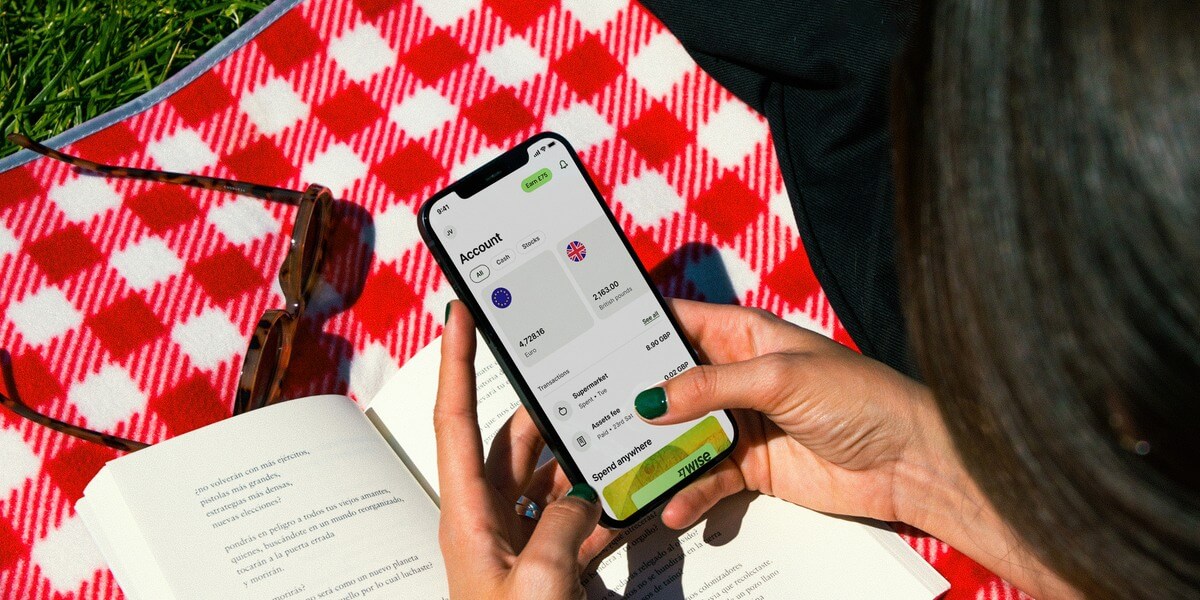
Wise offers you a quick, secure and transparent way of sending money to South Korea. You get the mid-market exchange rate for your payments and see how much it’s charged for the transfer before sending the money from your bank.
With the Wise Account you can also hold 40+ currencies, spend money in 150+ countries, and receive like a local in 9 different currencies.
Please see Terms of Use for your region or visit Wise Fees & Pricing for the most up to date pricing and fee information
Apartments are the most common types of property to rent in South Korea, but you have other options as well:
Villas (Billa): These aren't actual villas in the Western understanding of the word. Typically, a billa is a low-rise building with fewer units than large apartment complexes. These buildings often don't have elevators
Officetels: A unique Korean housing option, officetels are studio or small one-bedroom units in buildings that combine residential and commercial spaces. They often come with nothing but the bare necessities and are popular with single people who don't need a lot of space or appliances
Houses (Jutaek): Houses are less common in urban areas, but you can find them in suburban or rural regions
Shared houses: Similar to Western-style roommate arrangements, shared houses are becoming more popular, especially with young people and expats
If you're on a budget, consider renting a billa, an officetel or sharing an accommodation with another expat. Or you can go for the traditional apartment rentals, which are widely available.
The process of renting in Korea can seem confusing, but there are a few ways you can get started on your search:
- Real estate agencies: This is the most common and often the easiest method, especially for foreigners. Real estate agents have access to many different listings and can help you navigate the process
- Expat communities: Facebook groups, forums like Reddit's r/Korea and other expat websites can be great for finding rentals
- Word of mouth: If you know people who've traveled to or lived in South Korea, consider asking them about any available rentals they might have heard of
- Walking tours: When you're in Korea, you can simply walk around and look for "For Rent" signs (although these will likely be in Korean)
Korean real estate websites will most likely be in Korean. But some English-language websites cater to the expat community and offer listings in English.
If you’re starting your search online, these sites may be helpful to get an idea of what’s out there:
You can also use a website like Airbnb to find short-term accommodation first and then look for a long-term rental contract once you're more familiar with the country. This might make it easier to figure out where you want to be located and find a better deal.
South Korea is generally a safe country, but foreigners are often easy targets for rental scams. Use these tips to protect yourself:
- Always view the property in person before making any payments or signing agreements
- Be wary of deals that seem too good to be true (ex: rent far below the market rate)
- Never wire money or make deposits without signing an official contract
- Be cautious of landlords who pressure you to make quick decisions or large upfront payments
- Always get a receipt for all payments, including deposits
- Never accept a landlord's offer to mail you a key after you send a deposit - it's highly likely that your key will never come
If something feels off about a rental situation, trust your gut and ask for additional details or proof before paying anything or signing a contract. It's better to be safe than sorry.
There are a few important things to consider when choosing your Korean apartment, including:
Make a list of factors that are important to you (location, noise levels, natural light, etc.) and rate different properties to find the best option for you.
Here's what you can typically expect from the process of renting in South Korea:
1. Property search: Find a few apartments or accommodations you like
2. Viewing: Make sure to see the apartments or accommodations in person before making any commitments
3. Application: This typically means filling out an application form with your personal details and rental requirements.
4. Document submission: Provide necessary documents such as your passport and proof of employment.
5. Contract signing: Once you and the landlord agree on the terms, you'll sign a rental contract.
6. Deposit payment: Pay the deposit to secure your tenancy.
7. Move-in inspection: Check the property for any existing damages or issues.
8. Utility setup: Arrange for utilities to be connected in your name (not always necessary).
Working with a real estate agent can significantly simplify this process, especially if you're not fluent in Korean.
In Korea, it’s pretty atypical to find an apartment without a real estate agent.
There are many realtors, or budongsan, in the country. But if you’re specifically looking for a realtor who speaks English, you may want to do some research in advance.
Your realtor will be able to show you a range of listings, cut through a lot of complicated Korean-language advertisements and negotiate on your behalf to get you a good deal.
The Korean rental system has some unique features that are different from what you might be used to in the US and other countries.
Jeonse is a Korean rental system where tenants pay a large lump sum (typically 50-80% of the property's value) upfront instead of monthly rent.² At the end of the lease term, the landlord returns the entire amount to the tenant.
This system is very popular in Korea. It allows the tenants to practically live rent-free while landlords use the lump sum for investments.
Because of the popularity of jeonse agreements, there are laws in place that protect the tenant and ensure their money is returned to them at the end of their lease.
Otherwise, laws and rights are pretty standard, such as giving notice when you move out, restrictions around renovations (for both the tenant and the landlord) and clarifying the conditions under which you may be evicted.
Rental agreements in South Korea can vary, but they generally cover the following key points:
- Rent rate
- Deposit amount
- Terms for breaking the lease
- Subletting policies
- Instructions regarding renovations
How your deposit functions depends on your type of lease. In a wolsae, where you pay a deposit and then rent each month, you typically get your deposit back when your lease ends. That deposit amount is usually the equivalent of two months' rent.
In a jeonse, your rent and your deposit are interchangeable. You should get all of your money back, assuming you’re returning the apartment in good condition.
When you’re trying to make sense of rental advertisements, it’s a good idea to have a few Korean terms under your belt. The following are good to have in mind while you’re searching for your new home:
- Pyeong: A traditional Korean unit of measurement equivalent to about 3.3 square meters or 35.5 square feet
- Cheungsu: Floor number (in Korea, the ground floor is usually counted as the first floor)
- Jeonse: The unique Korean rental system where you pay a large deposit upfront instead of monthly rent
- Wolsae: The more Western-style rental agreement with a smaller deposit and monthly rent payments
- Gwanlibi: The maintenance fee for the apartment that covers shared expenses like security, elevator maintenance and cleaning of common areas
- Budongsan: Real estate agency, your main point of contact for finding rentals
Knowing these terms will help you communicate more effectively with landlords and real estate agents.
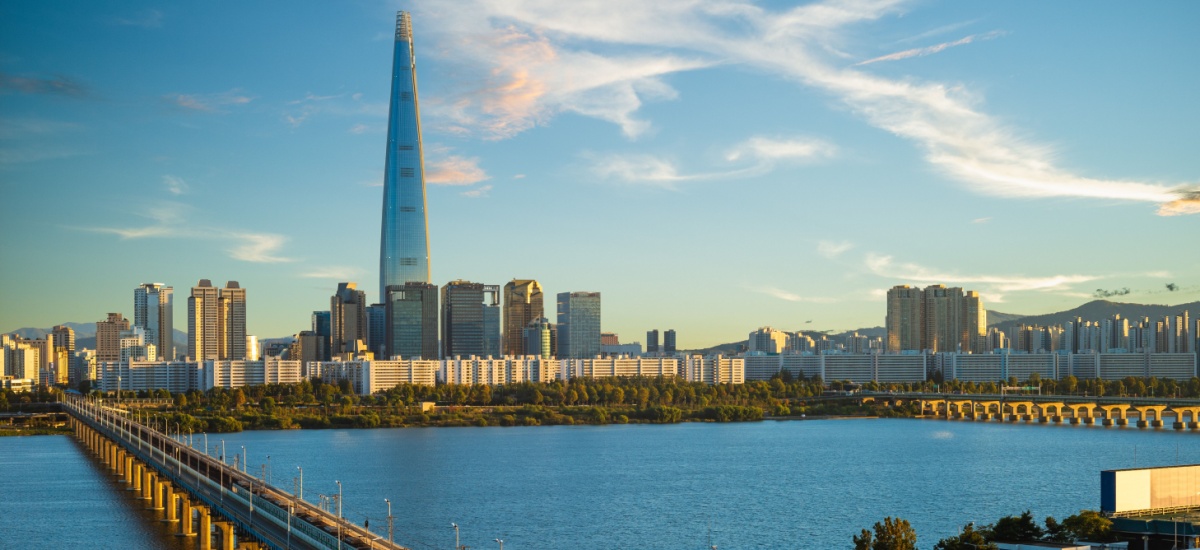
Seoul is the capital of South Korea and the largest city. It has excellent public transportation and lots of opportunities, especially for expats.
It's also one of the most expensive cities in South Korea. A 1-bedroom apartment in the city center costs approximately 1,206,611 KRW ( or ~905 USD) per month, but outside of the center, you can find a 1-bedroom rental for 678,000 KRW (or ~508 USD) on average.¹
Korea's second-largest city, Busan has a more relaxed lifestyle with beautiful beaches and a milder climate. It has a lower cost of living compared to Seoul but still comes with many of the opportunities of urban living.
A 1-bedroom apartment in the city center costs 658,333 KRW - or just under 500 USD - per month on average. For a 3-bedroom, you can expect to pay 1,337,500 KRW or ~1,000 USD on average.³
Outside of the city center, you can rent a 1-bedroom apartment for just 400,000 KRW (~300 USD).³
Gyeongju is a smaller city packed with historical sites and a quieter, more traditional Korean lifestyle. It's also quite expensive, with a 1-bedroom in the city center renting for 1,822,413 KRW or ~1,367 USD - higher than even Seoul apartments.⁴
Located in the southeast, Daegu has a nice balance of urban conveniences and nature, with lower living costs than Seoul, Busan and Gyeongju.
A 1-bedroom apartment in the city center costs 555,486 KRW or ~416 USD on per month on average. A 3-bedroom in the city center goes up to 1,639,604 KRW or ~1,230 USD.⁵
Incheon is a major transportation hub that comes with affordable housing options. On average, a 1-bedroom in the city center costs 525,000 KRW or ~394 USD per month. Outside of the city center, 1-bedrooms typically go for 375,000 KRW or ~281 USD.⁶
South Korea has unique renting systems like* jeonse* and cultural differences in housing. It's important to understand the rental process and know your rights as a tenant.
On average, it costs 747,354 KRW or ~560 USD to rent a 1-bedroom in the city center.⁷Seoul, Gyeongju, and Busan come with the highest cost of living while smaller cities like Daegu and Incheon are more affordable.
If you're moving to South Korea, use Wise to spend like a local. You can pay your rent and for other services with high-speed, low-fee transfers with no exchange rate markups.
🚀 Start saving on
international payments
| More on South Korea |
|---|
Sources
Sources checked 09.24.2024
*Please see terms of use and product availability for your region or visit Wise fees and pricing for the most up to date pricing and fee information.
This publication is provided for general information purposes and does not constitute legal, tax or other professional advice from Wise Payments Limited or its subsidiaries and its affiliates, and it is not intended as a substitute for obtaining advice from a financial advisor or any other professional.
We make no representations, warranties or guarantees, whether expressed or implied, that the content in the publication is accurate, complete or up to date.
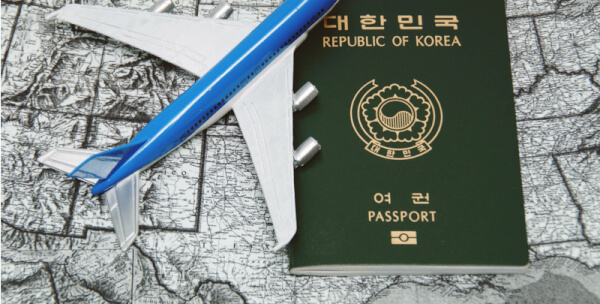
South Korea has had an industrial boom in the last decade, which has stabilized the country, grown its economy, and made it more attractive to...

South Korea is known by many in the international community to be a friendly, welcoming country that loves a good party. The same goes for holidays in South...

South Korea is a popular destination for expats looking to relocate abroad. It's a major technology hub and has thriving cities like Seoul. There are many job...
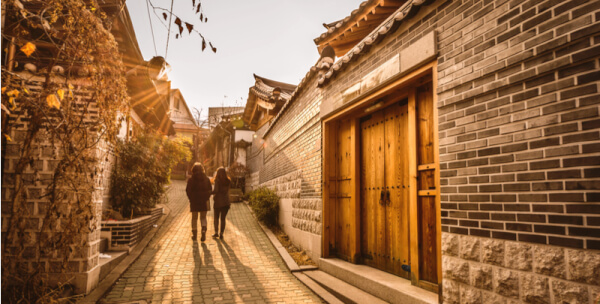
As a senior, you must decide where you’re going to retire. South Korea is an exciting and modern option that many Western retirees consider. Whether you’re a...

Seoul has a large expat community drawn from all around the world, thanks to the large numbers of global businesses based there. IBM, Google and Toyota, for...

One important decision, if you’re moving to South Korea with family, is how to ensure that your children receive the best possible education. Luckily, South...